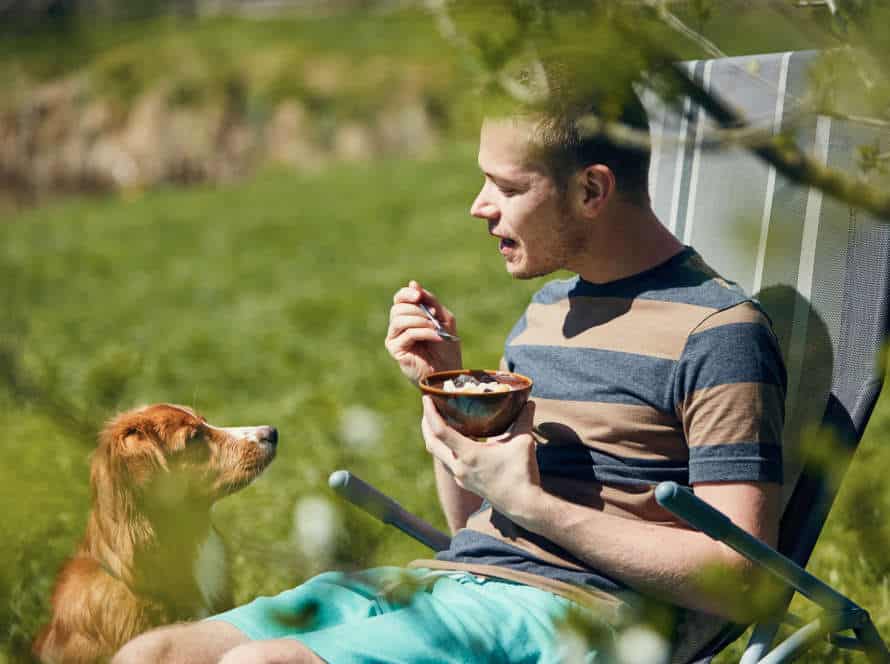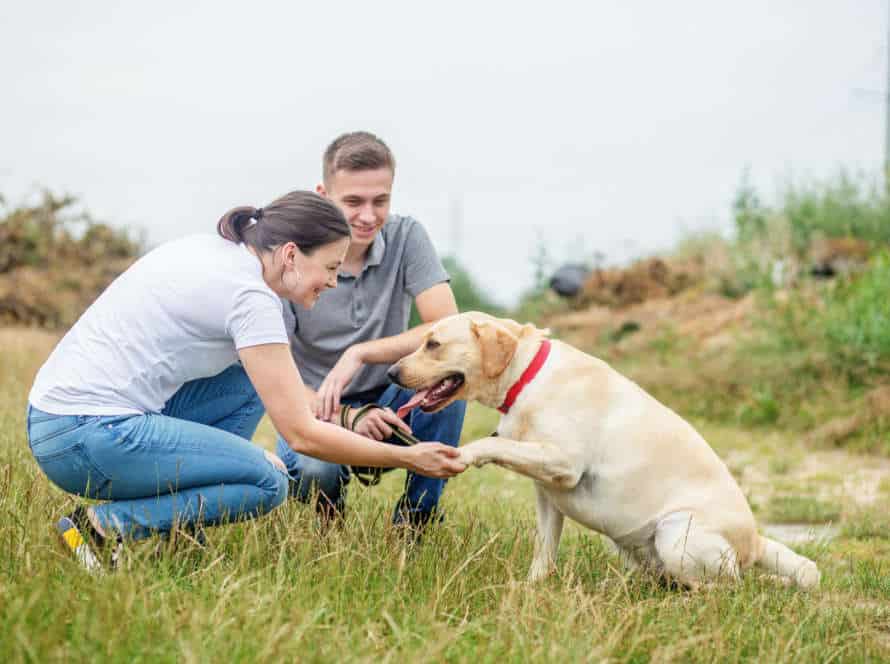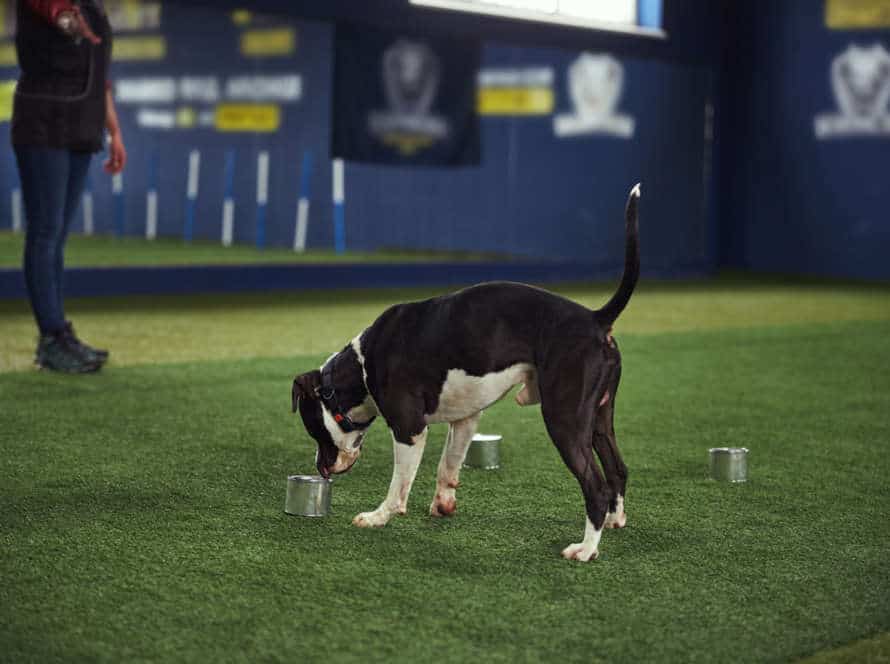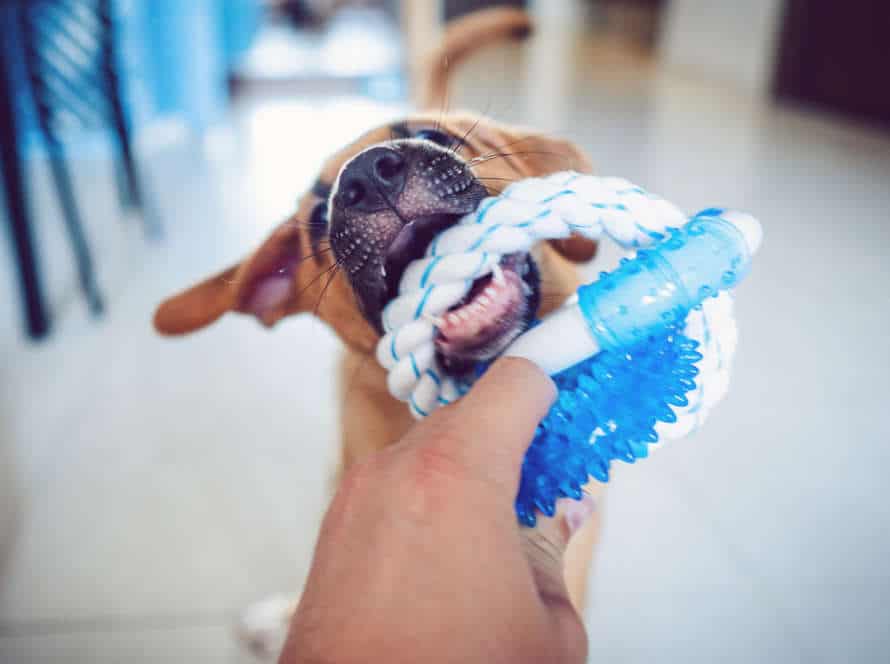Tug of War vs. Fetch: Which is Right for Your Dog?
Tug of War and Fetch – two great games to play with your pup! It all depends on their personality and needs though. Tug of War is perfect for dogs that love to pull and chew. This game can give physical and mental stimulation, relieving stress. Use a soft and durable toy, like a rope or tug, to avoid any tooth injuries.
Whereas, Fetch is a classic game great for high energy pups that love running. It provides aerobic exercise and helps with agility and coordination. Use a soft and safe toy, like a ball, for your pup to pick up and carry. Consider your pup’s individual needs and preferences when choosing the game. Both are great for bonding and entertainment.
Supervise your pup when playing, and never force them if they don’t want to.
Understanding Tug of War playtime
Dogs have been playing Tug of War for centuries. It’s an instinctual part of their nature! This game is both mentally and physically engaging. It’s important to understand the proper way to play. This way, it’ll be safe and beneficial for both you and your furry friend. Here’s all about the details of Tug of War playtime.
The benefits of Tug of War play
Tug of War play with your furry companion offers numerous rewards – both physical and mental. Plus, it can be a bonding experience for you and your pup.
Benefits include:
- Exercise – Tug of War is a great way to get your pup moving, helping to keep them at a healthy weight.
- Bonding – Tug of War playtime fosters trust and strengthens the bond between you two.
- Dental Health – Tug of War helps scrape off plaque on your dog’s teeth, encouraging good oral hygiene.
- Mental Stimulation – Playtime provides mental stimulation, avoiding boredom and promoting better behavior.
However, make sure to set rules and boundaries to avoid any aggressive behavior.
How to introduce Tug of War play to your dog
Introducing Tug of War play to your pup is a super way to give them mental & physical stimulation and create a bond. But, it’s important to know how to play safely. Here are some tips!
- Choose the right toy. Use something without metal or loose parts that can be chewed off.
- Teach commands. Like, “drop it” or “let go”. So you can stop the game when you want.
- Set boundaries. Establish rules like only playing when you start & stopping if they get too rough.
- Supervise. Always watch the game and stop if they show aggression.
- Tug vs. Fetch. Know the differences & choose the right game for their personality & energy level.
Pro Tip: Playing Tug of War is a great way to bond – but make sure to set boundaries & play safe.
Precautions to keep in mind while playing Tug of War
Tug of War is a blast for pups and their people. But, to keep it safe for both, follow these guidelines:
- Use a toy specifically for tugging so your dog won’t bite your hand.
- Don’t yank or jerk the toy. That could hurt your pup’s neck or jaw.
- Teach your pup to “drop it” or “leave it” to prevent possessiveness.
- Skip playing if your dog shows aggression or possessiveness.
- Make sure your pup’s old enough and fit enough to play.
Pro Tip: Play safely and correctly and it can also help with obedience and impulse control.
Understanding Fetch playtime
Fetch is great for your pup. Exercise and fun combined! Plus, you and your pup can bond. And they’ll feel proud. But Fetch isn’t the only game around. Let’s check out another – Tug of War!
The benefits of Fetch play
Fetch play is more than just fun – it has plenty of benefits for your pup! Here’s some of them:
- Physical Exercise – Fetch play helps dogs burn energy, maintain a healthy weight, and even build muscle strength.
- Mental Stimulation – Fetch play keeps their minds busy, teaching problem-solving skills.
- Bonding Time – Playing Fetch with your pup strengthens your bond and builds trust.
- Training – You can teach them obedience commands like “drop it” and “leave it”.
But not all dogs enjoy Fetch – some prefer Tug of War. If you’re not sure, give both a try and see which one your pup likes better.
How to introduce Fetch play to your dog
Fetch is a great way to strengthen your relationship with your pup! Plus, it’s a fun way to give them exercise and mental stimulation.
Here’s how to get started:
- Choose a safe, secure area – free from hazards and distractions.
- Pick a toy that’s safe and easy to throw.
- Start by using treats or praise to get your dog interested in the toy.
- Throw it a short distance and encourage them to get it.
- Give them a treat or lots of praise when they bring the toy back.
- Slowly increase the distance as they become more comfortable.
It’s worth noting that some dogs prefer tug-of-war over fetch. Both activities have their benefits, but tug-of-war is a good way to build trust between you and your pup. Make sure to set rules and boundaries to avoid harm.
Precautions to keep in mind while playing Fetch
Fetch is a great game for pooches! It’s important to take precautions to make sure your pup is safe and accidents are avoided though. Here are some safety tips:
- Pick the right place: Find a secure spot, away from any potential hazards or objects that could cause your doggo to stumble.
- Get the right stuff: Invest in strong, non-toxic toys made for fetching, and dodge any items that could splinter or break.
- Track your pup: Keep an eye out for signs of exhaustion or heatstroke, and make sure to give them rest and water often.
- Train them to “drop it”: Teach your pup to release the ball or toy with a command, preventing any choking or swallowing.
By following these precautions, you can have a fun, safe game of fetch with your furry pal!
Comparing Tug of War and Fetch playtime
Dog owners must consider safety, mood, and physical health when selecting activities with their pet. Tug of war and fetch are two popular activities. But which is right for your pup? Let’s compare the pros and cons of each game. See which one might be best for your furry friend!
Physical benefits of Tug of War vs Fetch
Tug of War & Fetch: both are awesome physical exercises for your furry friend. But, they work out different muscle groups & offer distinct benefits.
Tug of War: strengthens jaw, neck & shoulder muscles. Also builds grip strength & stamina. Burns off excess energy & reduces destructive behavior.
Fetch: great for cardiovascular health & leg muscles. Helps improve speed, agility & coordination. Encourages socialization & obedience training.
Both games are good for overall physical health. Also, provide fun bonding experience. Ultimately, depends on your dog’s age, breed, personality & health.
Mental benefits of Tug of War vs Fetch
Tug of War and Fetch are both awesome for your pup’s mental stimulation. But each one offers unique benefits.
Tug of War: It can help burn off energy, give them better focus, and reinforce obedience. Plus, it’s a great way to bond with your pup.
Fetch: It allows your dog to do their natural chasing and retrieving thing. Also, it helps with their hand-eye coordination and attention span.
In the end, it’s about your pup’s personality and energy level. Some pups love the competitive nature of Tug of War, while others enjoy the independence of chasing a ball in Fetch.
Which playtime is right for your dog’s personality and age
Tug of War and Fetch are great for your pup’s health. But which game is right? It depends on age and personality.
Tug of War is ideal for dogs with a strong prey drive and an enjoyment of people. It builds confidence, strength, and coordination.
Fetch is good for all dogs. It works agility, speed, and endurance. But aggressive or toy-hoarding pups should avoid this game.
Choose wisely! Take age, activity level, and personality into account. Always supervise and use the right toys. Make it fun with positive reinforcement and praise.
Pro tip: Alternate between Tug of War and Fetch to keep your pup’s body and mind stimulated.
Alternatives to Tug of War and Fetch
Tug-of-War and Fetch are 2 great games to play with your dog. But there are also other alternatives that can be just as fun, and possibly even more stimulating for your pup. This article will explain the different alternatives to Tug of War and Fetch. It will also discuss the benefits these alternatives can bring to your pup’s health and wellbeing. Finally, we’ll talk about why these alternatives are better than the popular games.
Puzzle toys and treat-dispensing toys
Want fun and brain-stimulating activities for your pup? Invest in puzzle toys and treat-dispensing toys. They’re different from traditional games like tug of war and fetch.
- Puzzle toys challenge your dog’s problem-solving skills and stop them from being bored and destructive. Examples are interactive puzzles and puzzle feeders.
- Treat-dispensing toys give your pup a reward. This helps them from eating too much and putting on weight.
Tug of war and fetch are good activities, but not all dogs like them. Some can get aggressive, others obsessed. It’s up to you to decide which activities fit your pup’s personality.
Hide and Seek games
Hide and seek is an entertaining switch from typical doggy games such as tug of war and fetch. Here are a few ideas to get you rolling:
- Treat hunt: Hide dog treats in your house or garden. Encourage your pup to use their nose to find them.
- Find the toy: Put your dog’s favorite toy in another room. Give them a clue to search for it.
- Hide and seek with family: Hide family members in different parts of the house or yard. Call out to your pup when they are found.
These games are not only fun for your pup, but they can also boost their mental stimulation and problem-solving skills. So, the next time you’re looking for a new activity to do with your furry pal, why not play some hide and seek?
Obedience training as mental exercise for dogs.
Train your pup in obedience! It’s a great mental exercise and a different option compared to physical activities like tug of war and fetch.
These physical activities can be fun and beneficial, but may not be suitable for all dogs.
Obedience training focuses on teaching commands like sit, stay, and come. And you can join obedience classes or training programs. It helps with your pup’s mental abilities, obedience, and strengthens the bond between you two.
However, tug of war and fetch have advantages too. Tug of war teaches your pup impulse control and can release energy. Fetch increases their stamina and cardio fitness.
Check with a vet or trainer to decide what activity is best for your pup.
Pro tip: Give them a mix of physical and mental stimulation for a happy and healthy pup.
Frequently Asked Questions
1. What is tug of war?
Tug of war is a game that involves pulling on a toy with your dog. The object is typically a rope or a toy with handles on each end. The game can be played with one or more players.
2. What is fetch?
Fetch is a game where you throw an object, like a ball or a frisbee, and your dog retrieves it and brings it back to you. Fetch can be played with one or more players.
3. Is tug of war safe for dogs?
Tug of war can be safe for dogs if played correctly. It is important to use a toy that is specifically designed for tug of war, and not to pull too hard or too aggressively. It is also crucial to stop the game if your dog becomes too worked up.
4. Is fetch safe for dogs?
Fetch can also be safe for dogs if played correctly. It is important to use an object that is appropriate for your dog’s size, and not to throw the object too hard or too far. It is also important to take breaks and not overexert your dog.
5. Which game is better for my dog?
Both tug of war and fetch can be enjoyable and beneficial for your dog. It ultimately depends on your dog’s personality and preferences. Some dogs may prefer the interactive nature of tug of war, while others may enjoy the running and jumping involved in fetch.
6. Can I play both games with my dog?
Yes, you can certainly play both tug of war and fetch with your dog. Just be sure to monitor your dog’s behavior and stop the game if they become too aggressive or tired.







